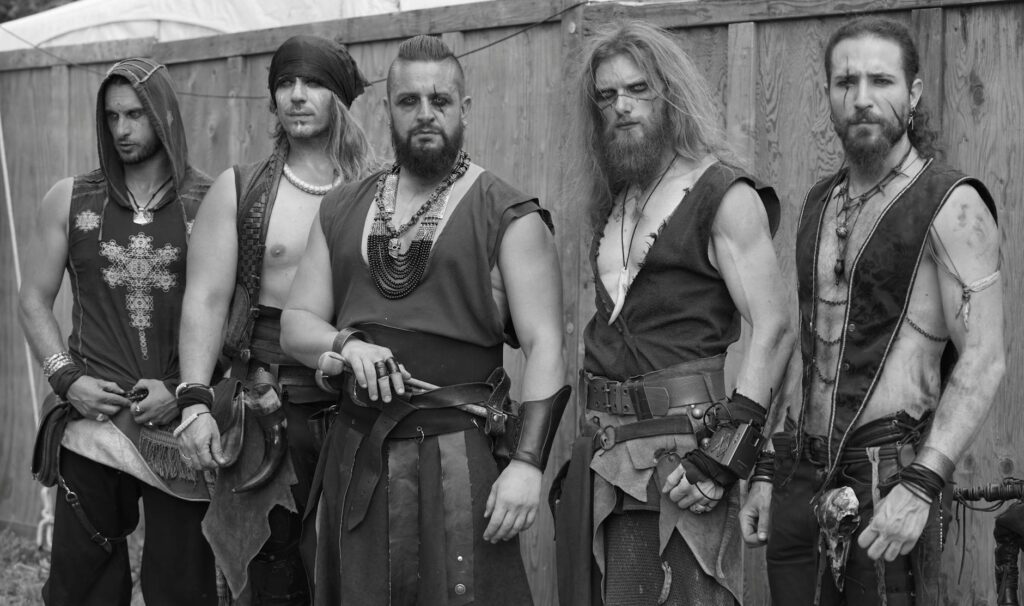Beards have played a significant role in cultural traditions, superstitions, and beliefs for centuries, symbolizing everything from wisdom and power to virility and mystery. Across different cultures and eras, beards have been celebrated, feared, and even regulated. This article dives into the fascinating world of beard superstitions and beliefs, exploring how these customs have shaped perceptions of beards across the globe.
1. Ancient Egypt: Beards as Divine Symbols
In ancient Egypt, beards were often seen as symbols of divinity and power. Pharaohs, regardless of gender, would sometimes wear false metal beards known as “osird,” to show their connection to the gods. Egyptian mythology attributed beards to Osiris, the god of the afterlife, agriculture, and resurrection, who was often depicted with a long, braided beard. Egyptian rulers wore these artificial beards during ceremonies to signify their god-like status and leadership.
2. Greece and Rome: Beards as Symbols of Wisdom and Mourning
In ancient Greece, beards were highly valued as symbols of wisdom, honor, and masculinity. Philosophers like Socrates and Plato wore beards as a statement of their intellectual status. In fact, beards were so revered that young Greek men would only shave after a significant achievement or as a mark of mourning for a deceased loved one.
In Rome, however, beliefs surrounding beards shifted over time. While Roman men typically grew beards as a sign of masculinity, the tradition changed during the reign of Emperor Augustus, who promoted shaving as a mark of sophistication.
3. India: Spiritual Power and the Beard
In India, beards have been associated with spirituality and wisdom, especially among sages and holy men. Ancient texts describe beards as symbolic of inner strength, and many holy men in India grow their beards as a symbol of renunciation from worldly attachments.
In Sikhism, beards hold deep cultural and religious significance. Sikhs view beards as a gift from God, a sign of respect for creation. Many Sikh men choose to maintain uncut beards and hair as an expression of their faith and a reminder of spiritual discipline.
4. Norse and Viking Culture: Beards as Symbols of Strength and Fertility
The Viking beard has become iconic, symbolizing strength, bravery, and virility. For the Norse, beards were an essential part of a man’s appearance, representing masculinity and readiness for battle. Vikings believed that the beard connected them to their warrior ancestors, and men would groom their beards with great care, often braiding them for ceremonial purposes.
Interestingly, it was also believed that a man’s beard influenced his fertility. In Norse mythology, beards were linked to fertility gods, and growing a thick beard was seen as a sign of a man’s vitality and potential to father children.
5. Middle Eastern Traditions: Beards as Symbols of Faith and Honor
In many Middle Eastern cultures, the beard has a deep connection to religious and social honor. In Islam, Prophet Muhammad is known to have encouraged men to grow beards as a symbol of dignity, respect, and commitment to their faith. Consequently, growing and maintaining a beard is seen as a Sunnah (practice) in Islam, though opinions and interpretations vary by region.
In some Middle Eastern societies, a man’s beard is considered sacred and a symbol of respect. Insulting or pulling a man’s beard can be seen as a grave offense, and men take great pride in grooming and maintaining their facial hair as a mark of personal and spiritual honor.
6. China: Beards and Wisdom
Historically, Chinese culture has placed value on beards as symbols of wisdom and maturity. Although facial hair is less common among East Asian men due to genetics, those who could grow a beard were often associated with scholarly wisdom. Ancient scholars and philosophers, including Confucius, were often depicted with beards, linking facial hair with intelligence and respect.
In contrast, imperial soldiers during certain Chinese dynasties would shave to demonstrate discipline and loyalty to the emperor, reflecting a nuanced relationship between facial hair and social roles.
7. Russia: Beards, Faith, and Peter the Great’s Beard Tax
In Russia, beards have long been intertwined with religious beliefs and social identity. In the 17th century, Tsar Peter the Great famously imposed a “beard tax” to encourage a more European, clean-shaven look. This law was highly controversial because beards were a symbol of piety for Russian Orthodox men, who believed shaving was an affront to God’s creation.
Men who chose to keep their beards had to pay a fee and received a copper token reading, “The beard is a superfluous burden.” Despite this, many Russian men continued to proudly wear their beards as a statement of religious devotion and resistance.
8. Western Superstitions: Beards and Luck
In some parts of Europe, beards were once thought to hold magical properties. Medieval folklore in certain Western societies suggested that a man’s beard could protect him from evil spirits or ward off bad luck.
The superstition that “a beard protects a man from evil” persisted in rural communities, where it was believed that trimming or cutting a beard could expose a man to misfortune. This belief encouraged men to keep their beards long and uncut as a talisman against harm.
9. Indigenous Tribes of North America: The Beard as a Rite of Passage
Many Indigenous cultures in North America view beards as a sign of maturity, with young men growing facial hair as part of their transition into adulthood. The onset of facial hair is often celebrated as a milestone, symbolizing wisdom and strength. While beard styles vary across tribes, facial hair generally holds a positive connotation, representing a deeper connection with ancestry and heritage.
10. Modern Superstitions and Urban Legends About Beards
Beards continue to carry symbolic meaning in modern culture. For example, it’s a common superstition in some sports communities that growing a “playoff beard” brings luck to a team. Athletes grow their beards throughout playoffs as a good-luck charm, believing that shaving would break the winning streak.
In addition, some modern subcultures link beards to creativity, with artists, writers, and musicians often seen sporting beards as a symbol of their craft and individuality. While these beliefs might not be as mystical or ancient as other cultural beard traditions, they show how beards remain a powerful emblem of identity.
Conclusion: The Universal Symbolism of Beards
Beards have been revered, feared, and celebrated in various forms around the world. From ancient Egypt to modern playoff games, the beard symbolizes power, wisdom, faith, and even luck. Each culture’s beliefs surrounding beards are a reflection of the values, spiritual practices, and social norms of their time, showing just how deeply personal and meaningful facial hair can be.
So, whether you’re growing your beard for style, tradition, or superstition, remember you’re part of a long-standing tradition that crosses cultures and eras. And if you’re looking for quality products to care for your beard, Beard Bright offers a range of oils, balms, and washes that help keep your beard as healthy and well-groomed as it deserves to be.

